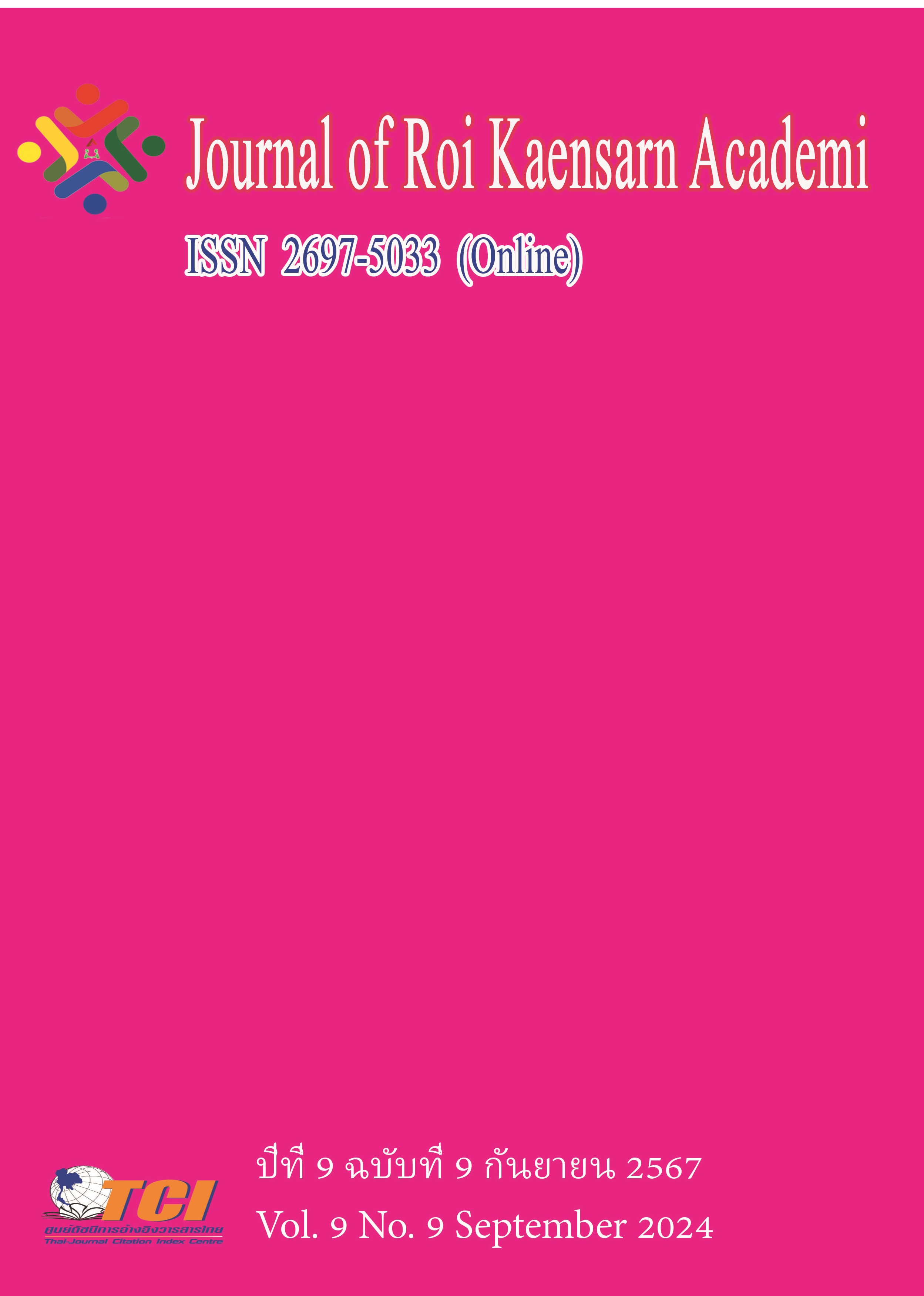The Study of Emotional Problems, Self-Emotional Regulation Problems, and How the Positive Psychology and Collaborative Learning Approach can be Implemented in Enhancing Self-Emotional Regulation Ability of Chinese Students
Main Article Content
บทคัดย่อ
The objectives of this research were 1) to study Chinese university students' emotional problems and self-emotional regulation problems and 2) to study how the positive psychology theory and collaborative learning approach can be implemented to enhance university students' self-emotional regulation ability. The research involved 100 freshmen from five majors at Guangxi University of Science and Technology, China, along with four experts. Data were collected through structured interviews validated by five experts and analyzed using content analysis. The findings reveal that students commonly experience emotional problems such as confusion about the future, anxiety, social anxiety, self-blame or guilt, low self-esteem, frustration, depression, and irritability. The personal problems that students faced were that they were not good at regulating negative emotions in terms of situation modification, attention deployment, and choosing positive strategies. Students also faced teacher-related problems, such as teacher-centered methods of theoretical lecturing and a lack of opportunities to practice emotional regulation in the classroom. Some students also reported that they were reluctant to participate for fear of ridicule from the teacher. It also revealed that students faced general problems such as being unsociable, introverted, and easily losing control. The study suggests that integrating positive psychology theory and collaborative learning approach can significantly enhance students' self-emotional regulation ability. Key factors include fostering positive relationships with teachers and peers, focusing on strengths rather than weaknesses, and promoting personal growth. A safe and positive classroom environment, along with engaging activities such as group discussions, role-plays, jigsaw exercises, communication games, and Q&A sessions, can effectively enhance students' ability to regulate their emotions.
Article Details
เอกสารอ้างอิง
Ciarrochi, J., Hayes, L. L., & Hall, K. (2020). Your life, your way: skills to help teens manage emotions and build resilience. Instant Help, an imprint of New Harbinger Publications, Inc.
Salovey, P., & Sluyter, D. J. (1997). Emotional development and emotional intelligence: educational implications. (1st Ed.). Basic Books.
Brackett, M. A., Rivers, S. E., Shiffman, S., Lerner, N., & Salovey, P. (2006). Relating emotional abilities to social functioning: A comparison of self-report and performance measures of emotional intelligence. Journal of Personality and Social Psychology, 91 (4), 780-795.
Davis, H. A., DiStefano, C., & Schutz, P. A. (2008). Identifying patterns of appraising tests in first-year college students: Implications for anxiety and emotion regulation during test taking. Journal of Educational Psychology, 100 (4), 942-960.
Gao, X. (2024). Manifestations, Causes, and Responses to Psychological Problems of College Students Based on Rootedness Theory. International Public Relations, 04, 163-166.
Han, E. L. (2023). Investigation on mental health status of college students during COVID-19 epidemic. Wisdom Health, 3, 34-37.
Heller, W., Etienne, M. A., & Miller, G. A. (1995). Patterns of perceptual asymmetry in depression and anxiety: implications for neuropsychological models of emotion and psychopathology. Journal of Abnorm Psychol, 104 (2), 327-333.
Hu, X. N. (2021). Exploring the reform of college students' mental health education program from the perspective of positive psychology. Heilongjiang Science, 12, 126-127.
Johnson, R.T., & Johnson, D. W.. (2008). Active Learning: Cooperation in the Classroom. The Annual Report of Educational Psychology in Japan, 47, 29-30
Okado, Y., & Bierman, L. K. (2015). Differential risk for late adolescent conduct problems and mood dysregulation among children with early externalizing behavior problems. Journal of Abnormal Child Psychology, 43, 735-747.
Ong, A. D., Bergeman, C. S., Bisconti, T. L., & Wallace, K. A. (2006). Psychological resilience, positive emotions, and successful adaptation to stress in later life. Journal of Personality and Social Psychology, 91 (4), 730-749.
Pei, J. J. (2019). Teaching reform and exploration of college student's mental health education course. Educational Practice, 09, 95-96.
Pi, Y. Y. (2021). The reform of the teaching model of the psychological health education of college students based on project teaching. Theoretical research and practice of innovation and entrepreneurship, 13, 152-154.
Simpson, J. A., Collins, W. A., Tran, S., & Haydon, K. C. (2007). Attachment and the experience and expression of emotions in romantic relationships: a developmental perspective. Journal of Personality and Social Psychology, 92 (2), 355-367.
Seligman, M. E., & Csikszentmihalyi, M. (2000). Positive Psychology: An Introduction. American Psychologist, 55 (1), 5-14.

